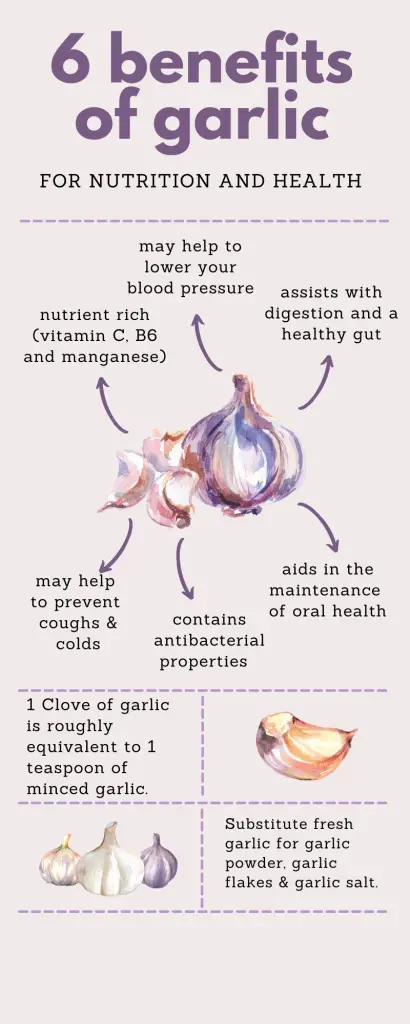Garlic is a popular ingredient in many cuisines and has been used for medicinal purposes for centuries.
It contains compounds that are beneficial for our health, such as allicin, which is known for its antibacterial and antifungal properties.
However, there has been much debate in recent years about whether aged garlic is better than fresh garlic. In this article, we will compare garlic versus aged garlic and explore their differences.
What is Garlic?
Garlic is a vegetable that belongs to the Allium family, which also includes onions, leeks, and shallots. It has a pungent smell and taste and is used in many different cuisines around the world. Garlic is also known for its medicinal properties, such as reducing cholesterol levels, improving immune function, and helping to prevent certain types of cancer.
Garlic contains several compounds that are beneficial for our health, including allicin, which is formed when garlic is crushed or chopped. Allicin is responsible for many of the health benefits of garlic and has been shown to have antibacterial, antifungal, and antiviral properties.
What is Aged Garlic?
Aged garlic is garlic that has been left to age for a period of time. During the aging process, the garlic is exposed to heat and humidity, which changes its composition. Aged garlic contains a different set of compounds than fresh garlic, including S-allyl cysteine (SAC) and S-allyl mercaptocysteine (SAMC).
Aged garlic is often used as a supplement and is available in capsule or liquid form. It is also used in cooking, but its milder taste means that it is not as popular as fresh garlic.

Garlic vs. Aged Garlic: Which is Better?
There is no clear answer to the question of whether garlic or aged garlic is better. Both have their own set of benefits and drawbacks, and the choice ultimately depends on individual preferences and health needs.
Benefits of Raw Garlic
Fresh garlic is known for its antibacterial, antifungal, and antiviral properties. It has been shown to be effective against a range of pathogens, including the common cold, flu, and even some types of bacteria that are resistant to antibiotics.
Garlic is also beneficial for cardiovascular health. It has been shown to lower cholesterol levels, reduce blood pressure, and improve blood flow. These effects are thought to be due to the presence of allicin in garlic, which helps to reduce inflammation in the body.
In addition, garlic has been shown to have anticancer properties. Studies have found that people who consume garlic regularly are less likely to develop certain types of cancer, including colon, stomach, and prostate cancer.
Related Articles
Benefits of Motherwort
Garlic and Testosterone
Normal Troponin Levels
Lauric Acid Benefits
Benefits of Aged Garlic
Aged garlic contains a different set of compounds than fresh garlic.
These compounds have been shown to have antioxidant properties and may help to reduce inflammation in the body.
Aged garlic has been studied extensively for its cardiovascular benefits. It has been shown to lower blood pressure, reduce cholesterol levels, and improve blood flow.
Aged garlic may also help to reduce the risk of heart disease by reducing the formation of plaque in the arteries.
In addition, aged garlic has been shown to have immune-boosting properties.
It may help to enhance the function of certain immune cells, such as natural killer cells and macrophages, which are important for fighting off infections and cancer cells.
Garlic Side Effects
One of the main drawbacks of garlic is its strong taste and smell. Some people find the taste and odor of garlic unpleasant, and it can be difficult to use in recipes without overpowering other flavors.
Garlic can also cause digestive issues for some people. It may cause gas, bloating, and diarrhea, particularly when consumed in large amounts.
Conclusion
In conclusion, the comparison between aged garlic and raw garlic highlights distinct benefits associated with both forms.
Aged garlic offers advantages such as enhanced bioavailability of beneficial compounds, reduced pungency, and potentially improved cardiovascular health.
On the other hand, raw garlic contains higher levels of allicin, a potent compound with potential antimicrobial and immune-boosting properties.
When deciding between aged and raw garlic, it’s important to consider your specific health goals.
If you’re looking for a milder flavor and potential cardiovascular benefits, aged garlic might be a good choice.
On the other hand, if you’re seeking a more potent immune support and are comfortable with the stronger taste, raw garlic could be more suitable.
Remember that both forms can be valuable additions to a balanced diet, offering a range of potential health advantages.
As always, consulting with a healthcare professional can provide personalized guidance based on your individual needs and preference
References
https://pubmed.ncbi.nlm.nih.gov/29576354/
My name is Phyllis Robinson MSN, RN. I have been a Registered Nurse for 27 years in the Cardiac Intensive Care Unit. I am passionate about cardiac care and heart disease. I also want this blog to be an educational tool that people can refer to for traditional and alternative treatment. I will blog on heart disorders such as high blood pressure, congestive heart failure, cardiomyopathy, and high cholesterol.
I received my Nursing degree from Baltimore Community College.
I went on to receive my Masters in Nursing from Walden University
I have worked for almost 30 years in Critical Care with a focus on heart health. I am an advocate of preventive healthcare.

